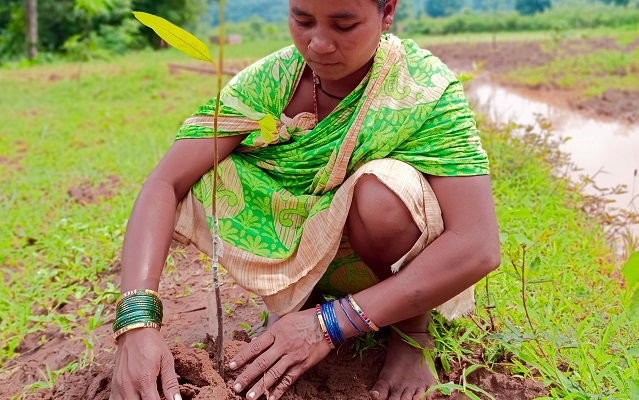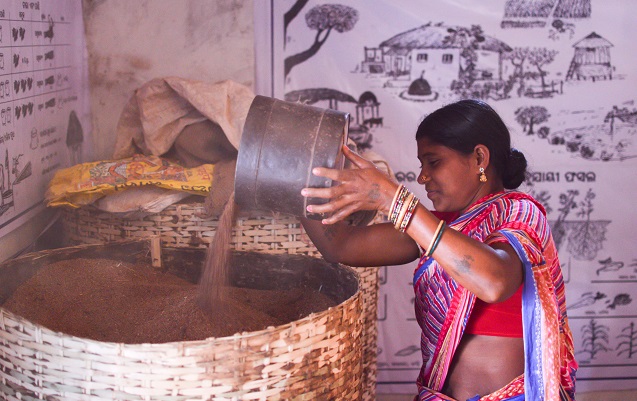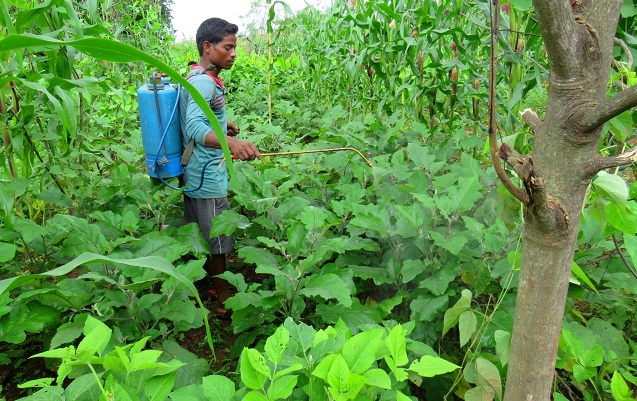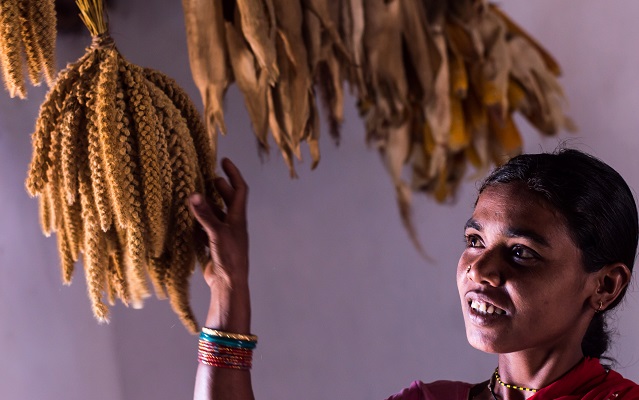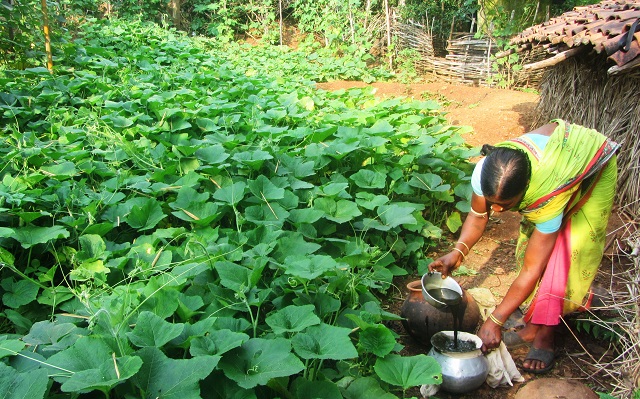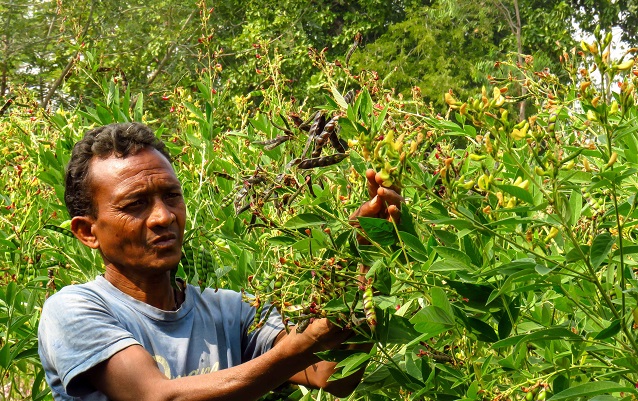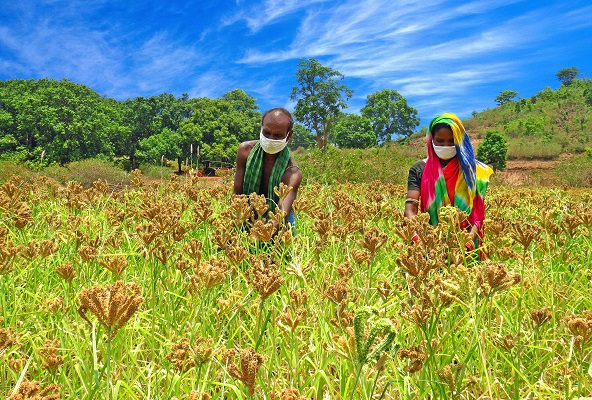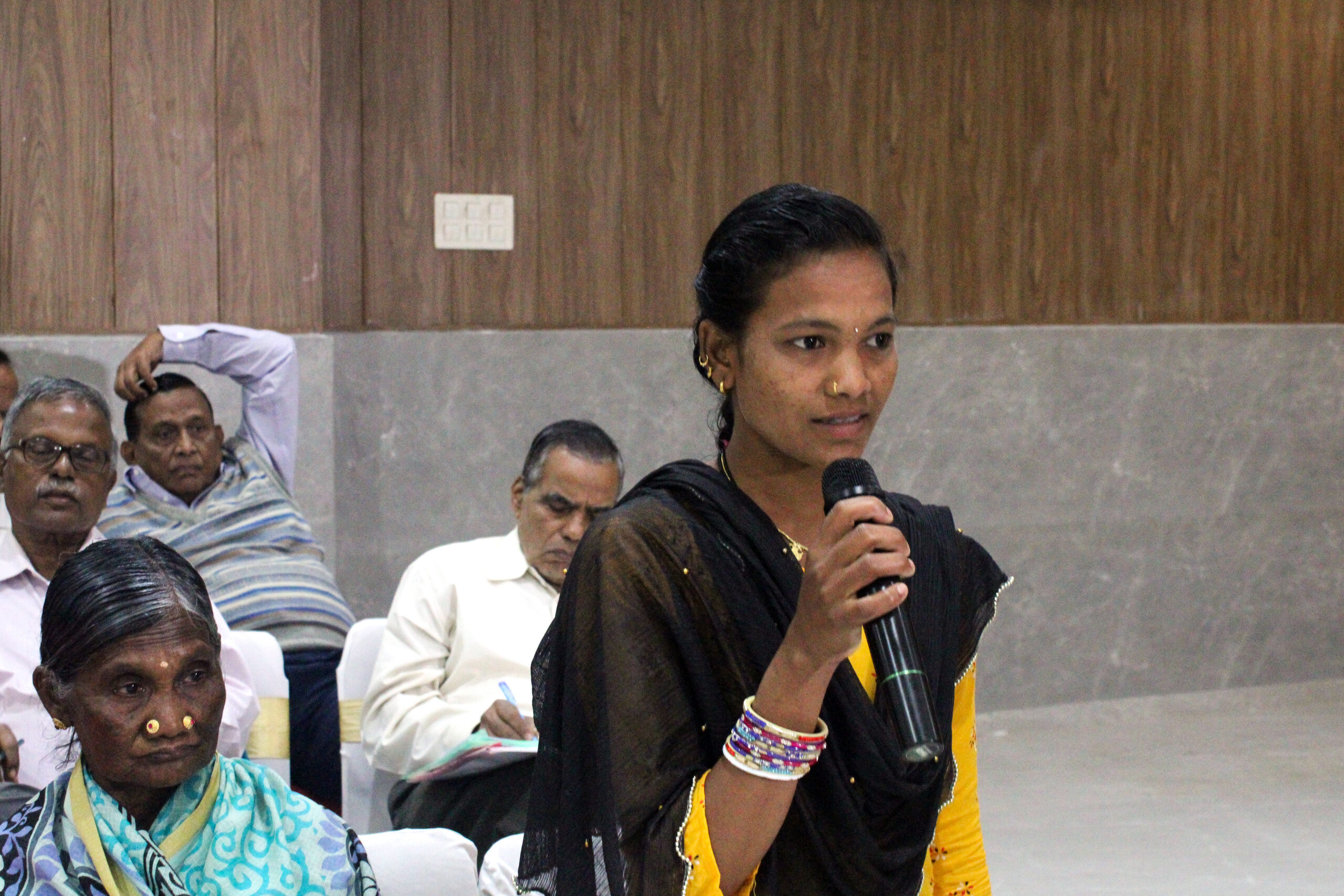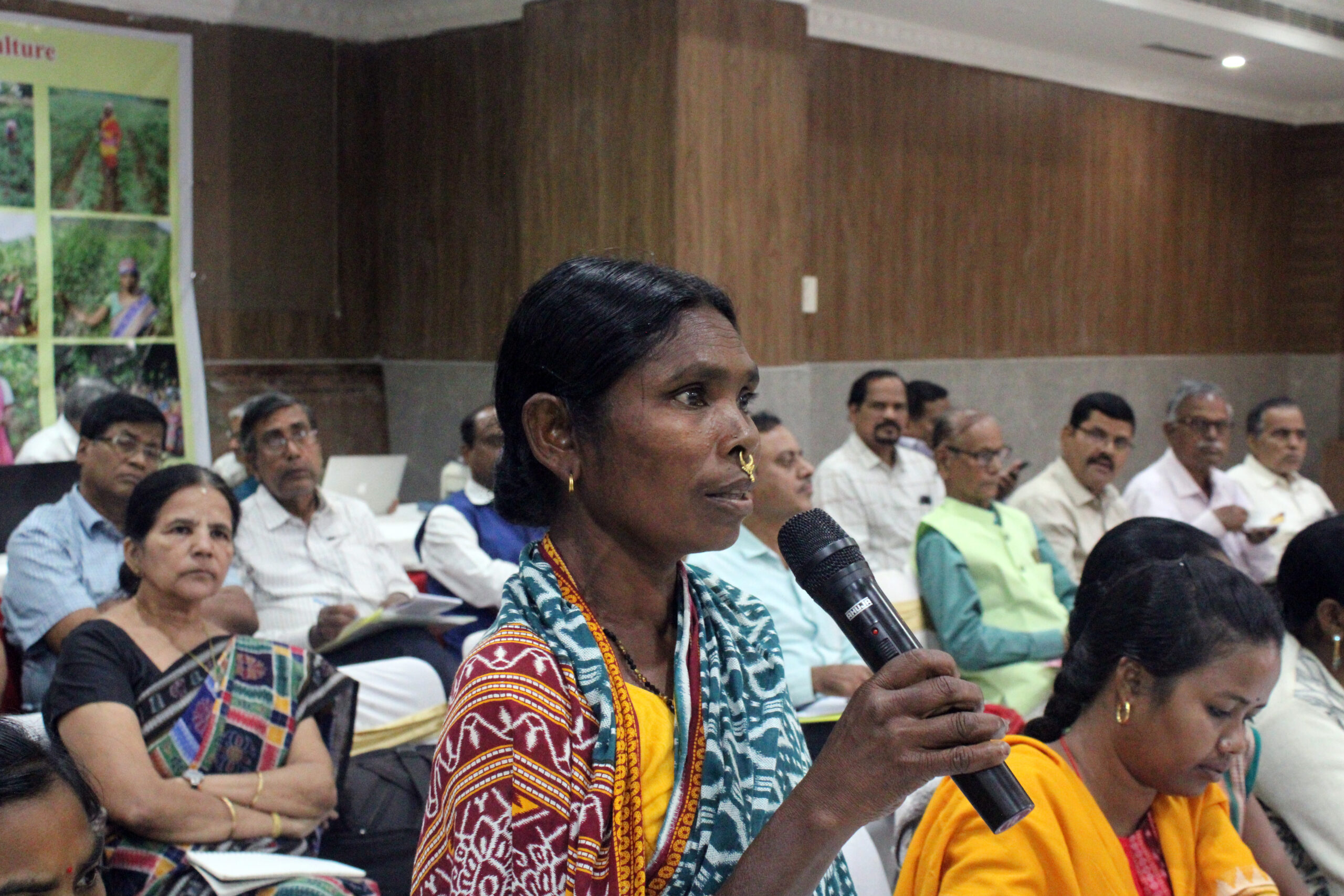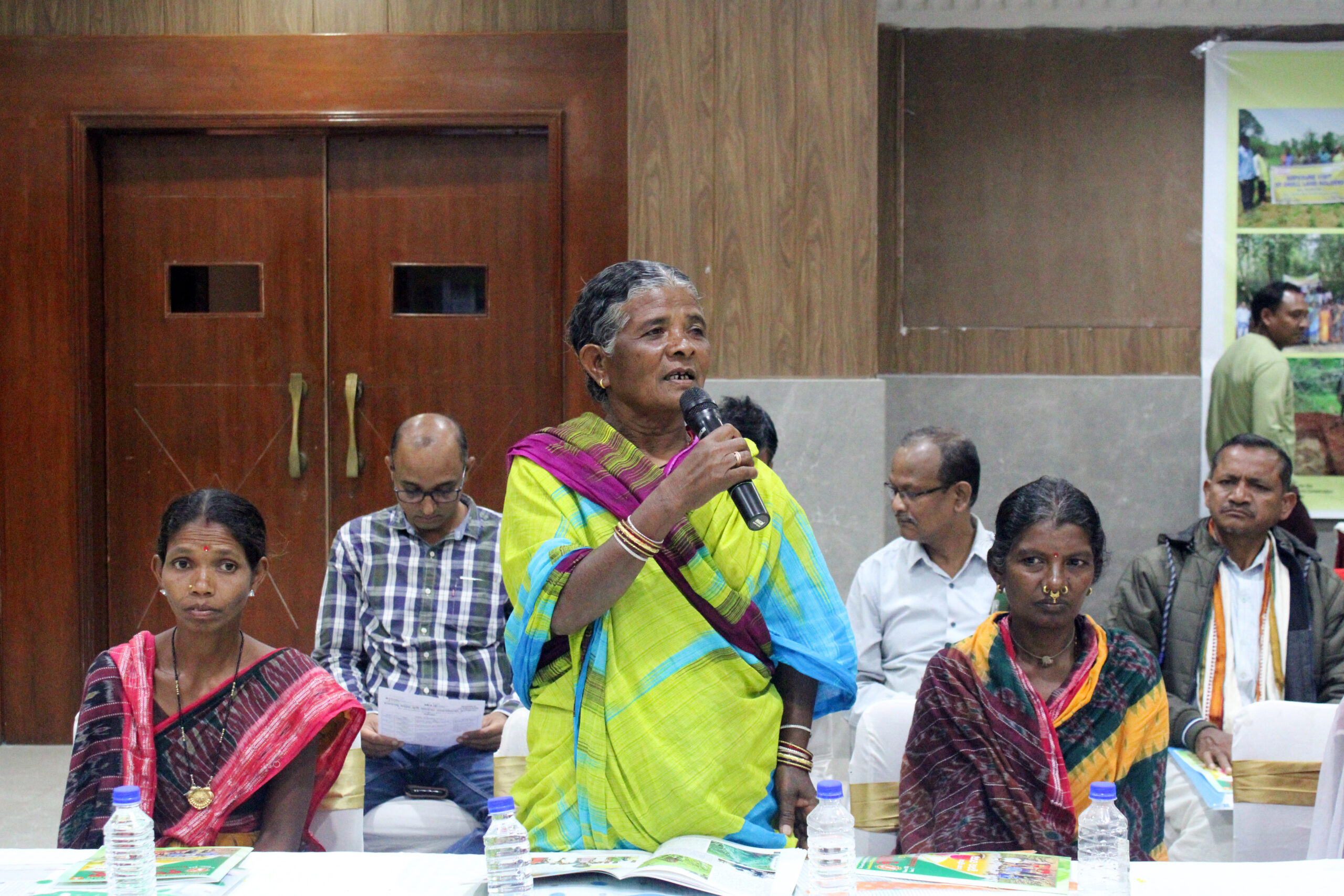Climate Smart Agriculture for Small Land Holders
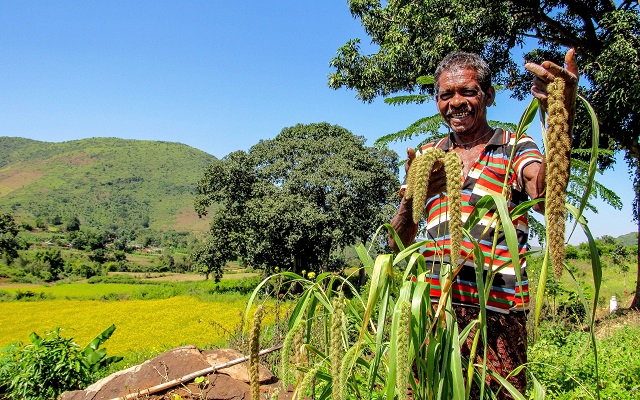
Odisha state in Eastern India is rich in natural resources. However, a third of its population is considered poor. Due to its dependency on these resources is subject to the negative impacts of climate change.
The IKI Small Grants project targets the Rayagada district in Odisha state, one of the poorest districts in India. It aims to improve the adaptation capabilities and resilience to weather variabilities and extremes within indigenous communities and other most marginalized communities. Through trainings it promotes farming practices using agro-ecological principles to ensure food and livelihood security. The promotion and establishment of nutritional gardens improves the nutritional status of the targeted population. By managing land, water and forest resources and reviving traditional food crops the natural potential of the districts is valorised.
The project addresses small and marginal land holders, particularly women and young people in 25 villages, targeting directly 1.200 households.
INITIAL SITUATION
Though Odisha state has rich natural resources, a third of its population is considered poor. The high poverty level as well as the high percentage of indigenous communities dependant on natural resources make the state particularly vulnerable to climate change. The announcement of its climate change action plan emphasises Odisha’s particular vulnerability to sea level rise, increased storm intensity (cyclones), extreme droughts, flash floods, heat waves, increased wind and rainfall events. Rainfall patterns are more erratic since the 1960s, with below-normal rainfall across all districts. Rainfalls has shrunk and unusual spikes in rainfall are more frequent during the monsoon season. The direct impacts of climate change include loss of life, livelihood, infrastructure, and natural vegetation as well as crops being under increased climate stress. Thus, indigenous community members are migrating to urban centres in search of food and livelihood securities.
TARGET GROUP
The project addresses people from indigenous and marginalized communities in Rayagada district. They are mainly small land holders, a significant part being members of so-called “Scheduled Tribe Communities”. Hence, supporting them with sustainable agriculture techniques related to climate-smart agriculture and conserving natural resources for long term use is vital for them in the long run.
800 women and 400 men are considered direct beneficiaries, while 3000 women and 3000 men – mainly family members – are indirect beneficiaries of the project.
Special efforts are made to involve and draw women into the project experience, taking into consideration their conditions of much larger percentage of illiteracy, and overall gender bias. Community leaders and their associations are engaged in the project for better local implementation and anchorage of the activities.
APPROACH AND ACTIVITIES
The project works with small landholders respectively farmers in order to capacitate them on climate-smart agriculture (CSA) systems and practices, which improves their adaptation capabilities and resilience to weather variabilities.
This project supports these farmers by helping them understand and adopt climate-smart agricultural techniques, thereby increasing their resilience to climate change and other environmental and economic shocks.
Training and assisting of eco-leaders, development of information-education-communication materials, support for nutritional garden development, sustainable and integrated farming and linkages with government schemes ensure food and nutritional securities of 1.200 households in 25 villages.
The project arranges to impart trainings to 30 young women and 20 young men eco-leaders for ecological transformation, food security and self-reliance in 25 villages while focusing on skilling communities for rejuvenation of their land, water, and forest resources and reviving traditional food crops and biodiversity. They are trained on the identified trades i.e. nursery raising and management, water resource management, and climate-smart agriculture.
Up to 1.200 households are supported establishing nutritional gardens for organic production of a range of vegetables and fruits round the year, improving their nutritional status.
The hands-on approach supports, educates, and expands climate-smart approaches, so that farmers not only take up the techniques but also learn to observe, and develop them further, thereby expanding the area under CSA, as also sharing with other practitioners.
LATEST PROJECT HIGHLIGHTS AND IMPACTS
- Project finalized
- Training of 1200 farmers in climate smart agriculture (CSA)
- 485 hectares area covered under CSA
- Successful Mobilisation of Community Leaders to adopt CSA
- Awareness Generation among a population of 30,000 on CSA
CAPACITY DEVELOPMENT
Training for enhanced knowledge and skills on Project Cycle Management
ABOUT THE ORGANISATION
Agragamee (meaning “pioneer”) is a non-governmental organisation based in the city of Rayagada, Odisha. Working since 1987 in the area, Agragamee has set its mission to promote all aspects of tribal development throughout India, with focus on Odisha through an integrated approach to help tribal communities mobilize for self-sustaining development initiatives. Agragamee works particularly with the people in this backward region to empower them – tangibly and intangibly – with the awareness, means, rights, skills and opportunities necessary to check their exploitation and to sustainable manage their natural resource base.

